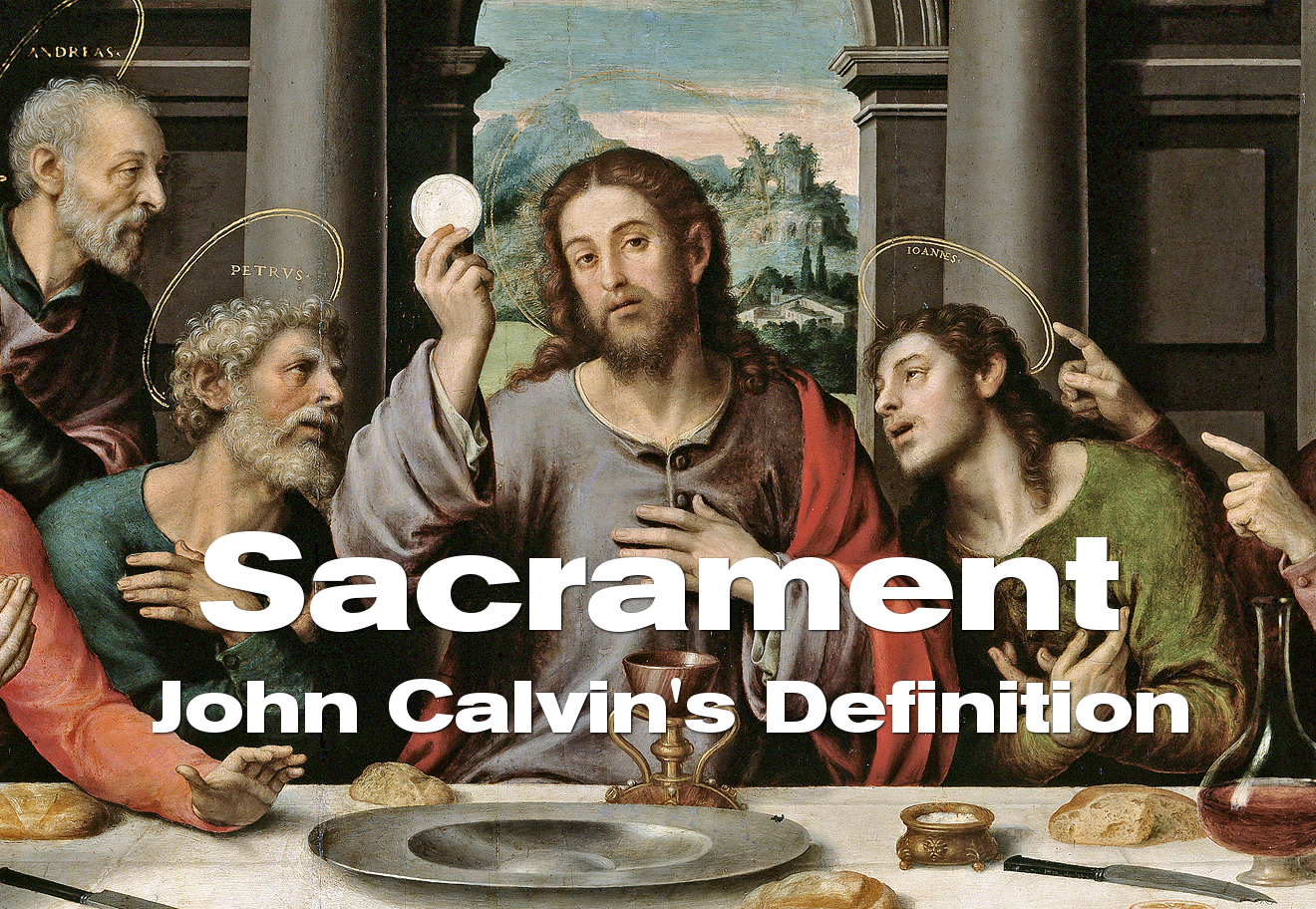 John Calvin provides the following definition of sacrament in the Institutes of the Christian Religion (IV.xiv.1-2) using the vernacular of "sign and seal" that is a staple of conservative Reformed sacramentology, and appears in the Westminster Confession of Faith and the other Reformed confessions.
John Calvin provides the following definition of sacrament in the Institutes of the Christian Religion (IV.xiv.1-2) using the vernacular of "sign and seal" that is a staple of conservative Reformed sacramentology, and appears in the Westminster Confession of Faith and the other Reformed confessions.
Calvin's definition is ecumenical, as he desires the unity between the Lutheran Church (Luther-Melanchthon) and the Swiss Reformed (Zwingli-Bullinger), with the Lutherans emphasizing the impression of the seal on the Christian and the Swiss Reformed emphasizing the sign of the Christian, and Calvin stands in the midst and has it both ways with his twofold talk of "sign and seal".
The following quotation provides two definitions of 'sacrament' by John Calvin, and a briefly explanation on how his definition aligns with that of Augustine of Hippo. And lastly, it has a clarification on the term 'sacrament' vs 'mystery' being a different of the Western Roman Church verse the Eastern Greek Church respectively.
First, we must consider what a sacrament is. It seems to me that a simple and proper definition would be to say that it is:
An outward sign by which the Lord seals on our consciences the promises of his good will toward us in order to sustain the weakness of our faith; and we in turn attest our piety toward him in the presence of the Lord and of his angels and before men.
Here is another briefer definition:
One may call it a testimony of divine grace toward us, confirmed by an outward sign, with mutual attestation of our piety toward him.
Whichever of these definitions you may choose, it does not differ in meaning from that of Augustine, who teaches that a sacrament is "a visible sign of a sacred thing," or "a visible form of an invisible grace," but it better and more clearly explains the thing itself. For since there is something obscure in his brevity, in which many of the less educated are deceived, I have decided to give a fuller statement, using more words to dispel all doubt.
2. The word "sacrament"
The reason why the ancients used this word in this sense is clear enough. For wherever the old translator wished to render into Latin the Greek word μυστήριον, especially where it refers to divine things, he translated it "sacrament."
Calvin, John. Institutes of the Christian Religion. Ed. John T. McNeill. Trans. Ford Lewis. Battles. Philadelphia, PA: Westminster, 1960. 1277-8. Print.
(Image source:wikipedia)



Leave a comment